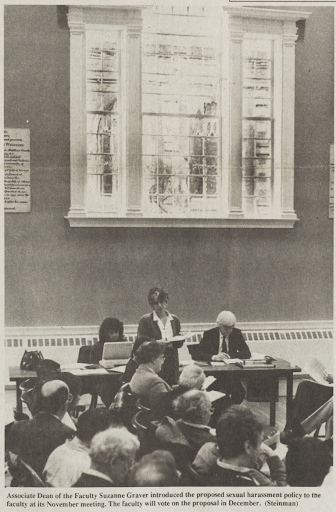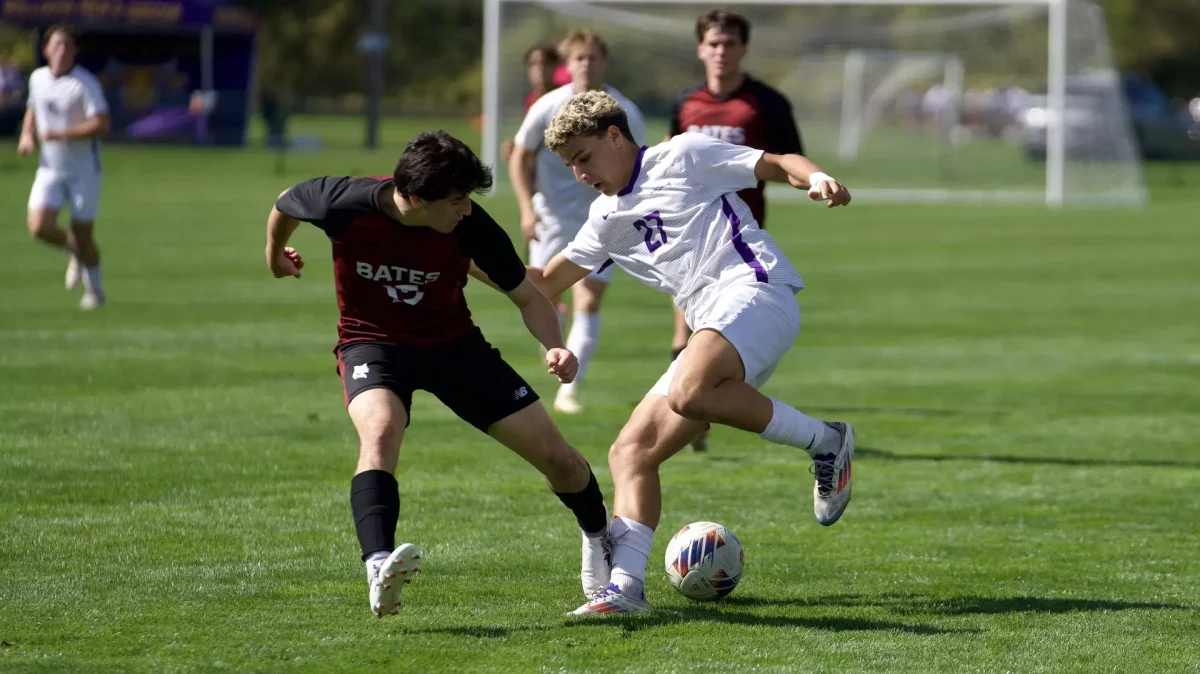
“This Week in Williams History” is a column that looks back at memorable moments in the College’s past through articles in the Record. This week in history, local residents were asked to commit to a pledge against discrimination in housing, students debated slashes to athletic funding during Town Meeting, and faculty discussed proposed changes to the College’s sexual harassment policy.
Nov. 22, 1963: Town residents asked to pledge support to non-discriminatory housing
The Record reported in its Nov. 22, 1963, issue that the Williams Civil Rights Committee and the Williamstown Ministers Association had jointly sponsored a pledge against housing discrimination in the Town.
The pledge, which asked citizens to “work for a successful community with any neighbors, regardless of their race, color, or creed,” was circulated around the Town by students at the College as well as local high school students and other volunteers.
According to the article, the proposed pledge was precipitated by an incident during Homecoming in which a College employee refused to rent rooms to two Black students due to their race.
“We expect to aid the concerned people of Berkshire County in their future efforts to lessen the burden of discrimination, most glaring in the field of housing,” Co-chair of the Civil Rights Committee Steve Block ’65 told the Record.
Nov. 20, 1979: Students debate funding for club sports
Even 45 years ago, the debate surrounding the divide between athletes and non-athletes at the College was alive and well. On Nov. 15, 1979, over 200 students attended Town Meeting to discuss proposals on athletics at the College, the Nov. 20, 1979, issue of the Record reported.
In the meeting, Karon Walker ’80 argued that some non-athlete students might feel “persecuted by the extreme athletic orientation of the student body.” In response, one athlete claimed that he felt “persecuted” whenever he went to the library.
According to the article, the most divisive topic of the night was funding for club sports. While many athletes wanted an increase in funding, Tim Kenefick ’80 claimed that teams spent their dues irresponsibly. He cited the club rugby team, which dedicated part of its dues toward “beer parties and necktie purchases,” as a prime example.
George Leaman ’80, who saw Kenefick’s remark as an attack on club rugby, came to its defense by justifying the team’s spending habits. “We have traveled to Europe, and this year we’re going to New Orleans during Mardi Gras,” he said. But after “a wave of laughter from the Assembly,” as the Record described it, Leaman quickly added, “There’s a major tournament there.”
Only two resolutions passed during the meeting. The first, proposed by Dan Friesen ’81, stated that faculty will take “no steps toward limiting athletics at Williams.” It passed with only one opposing vote.
The second resolution, proposed by a group of five students, called for continued support of club sports from the College Council and asked that the athletics department consider establishing a general club sport fund to cover some team expenses. The resolution passed unanimously.
Nov. 20, 1990: Faculty members, students discuss sexual harassment policy
An article in the Nov. 20, 1990, issue of the Record detailed a faculty meeting dedicated to discussing proposed changes to the College’s sexual harassment policy.
During the meeting, faculty members voted informally on a number of matters. They voted to revise a phrase, for instance, that described student-faculty sexual relationships as “certainly inadvisable” to “almost in all circumstances inadvisable.”
Faculty also approved a change in policy that would mandate “a faculty or staff member must completely remove him or herself from a teaching, counseling, or evaluative role with a student with whom he or she currently has a sexual relationship.”
But according to Alan Smith ’93, a student on the Ad Hoc Committee on Sexual Harassment Policy, some students supported an alternative policy that would prohibit all sexual relationships between a student and faculty member where there is a “direct teaching, evaluative, counseling, or supervisory connection between the two parties.” A general student meeting to discuss the alternative was set to occur later that month.







